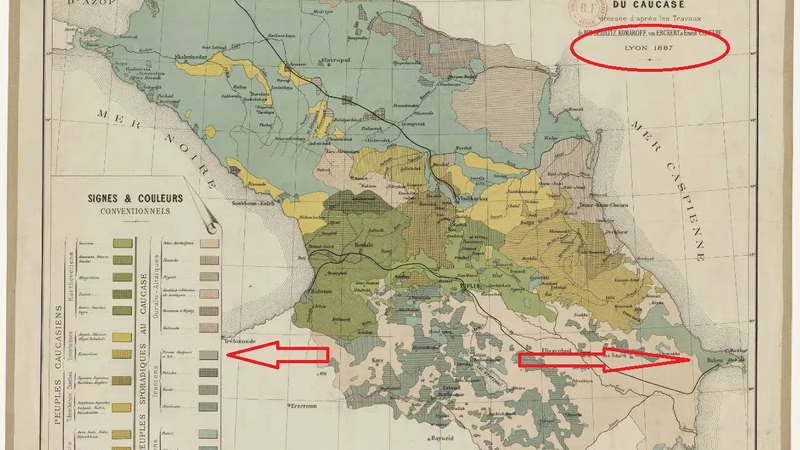
Azerbaijan"s rich culture reflects its diverse languages and religions. "
The majority of the people in Azerbaijan practice Islam. The predominant branch of Islam in the country is Shia Islam. However, it's important to note that Azerbaijan has a long history of secularism, and the government promotes a policy of religious tolerance and freedom. People of different religious backgrounds coexist peacefully, and there are also communities of Christians, Jews, and other religious groups in the country. Manat is the currency of the Republic of Azerbaijan, which is displayed in international markets with the symbol "AZN" and each manat is equal to 100 qəpik. Manat in Russian means coin and means 1, 5, 10, 20, 50, 50, 100, 200, and 500 banknotes and 1, 3, 5, 10, 20, 50 Qapik coins are divided and every 100 kopecks forms one manat.
Islam has a significant presence in Azerbaijan, with the majority of Azerbaijanis identifying as Muslims. Shia Islam is the predominant branch, followed by the majority of the population. The country has a long history of Shia Islam, influenced by the Safavid dynasty and the subsequent rule of the Shia Khanate of Baku during the 18th century. Azerbaijan has a tradition of religious tolerance and secularism. The government promotes a policy of religious freedom and actively works to ensure the peaceful coexistence of different religious communities, including Muslims, Christians, Jews, and others. Azerbaijan is home to various ethnic minority groups, and their languages are spoken within their respective communities. These languages include Lezgian, Talysh, Georgian, Armenian, Kurdish, and others. The government recognizes and supports the preservation of minority languages and cultures.
Islam is the main religion of the Republic of Azerbaijan and 99.2% of the population of this country are Muslims and about 85% of Azerbaijani Muslims recognize the Shiite religion, while 15% are Sunni Muslims. The official language of Azerbaijan is Azerbaijani (Azeri Turkish), which is close to modern Turkish and is related and fully understood. It is also a language, along with Turkmen and Gagoz, an Azerbaijani member of the Oghuz branch of the Southwestern Turkish family, it also speaks Russian, Azerbaijan, Lezgi, Talysh, and Tati.
One of the reasons why Iranians are interested in the Baku tour is the proximity of Azerbaijani culture to Iran. The traditions of Azerbaijan cover all stages of life, from birth to death, as well as annual holidays and other public works. These traditions show how to meet guests, get married, spend time, etc., although some traditions Over time, have disappeared and some of them are performed only in big programs or on holidays, but all of them are still important for the people and in their lives. Azerbaijani culture is influenced by Iranian, Turkish, Caucasian heritage as well as influences. Russia has developed because of its former position as a Russian colony, and today Western influences, including a culture of globalization and consumerism, are well visible.
The official language of Azerbaijan is Azerbaijani, also known as Azeri or Azerbaijani Turkic. It is a Turkic language and is spoken by the majority of the population. Azerbaijani is written using a modified version of the Latin alphabet. Russian, due to historical reasons, continues to be widely spoken and understood, particularly among older generations and in urban areas. English is also gaining popularity, especially among the younger generation and in major cities as part of the educational system and due to increased international connections. Additionally, there are various minority languages spoken in Azerbaijan, such as Lezgian, Talysh, Georgian, Armenian, and others, depending on the respective ethnic communities.
While Islam is the dominant religion, there are also minority religious communities in Azerbaijan. These include Christians (primarily Orthodox Christians and a smaller number of Protestants and Catholics), Jews, Bahá'ís, and others. These communities have their places of worship and are protected by law. Azerbaijani, also known as Azeri or Azerbaijani Turkic, is the official language of Azerbaijan. It belongs to the Turkic language family and has several dialects across the country. Azerbaijani is written using a modified version of the Latin alphabet, which was adopted in 1991.
Russian has had a significant historical influence in Azerbaijan, particularly during the Soviet era. Even though it is not an official language, Russian is still widely spoken and understood, especially among older generations and in urban areas. Russian-language education and media are also available. English is gaining popularity in Azerbaijan, especially among the younger generation and in major cities. It is taught in schools as a foreign language, and there is an increasing emphasis on English proficiency as part of the educational system. English is also used in international business and tourism sectors.
-
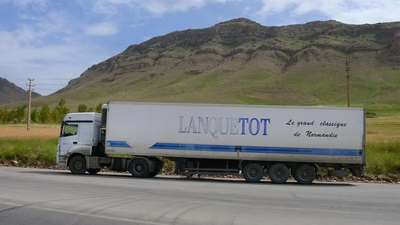
Azerbaijan"s economy is primarily driven by its oil and gas sectors, but the government is actively pursuing diversification into agriculture, tourism, and technology. Significant reforms have been implemented to enhance the business climate, including simplifying procedures and improving infrastructure. The country encourages foreign direct investment (FDI) through tax exemptions and streamlined processes for establishing various business entities. Azerbaijan"s strategic location at the crossroads of Europe and Asia positions it as a vital player in regional trade, participating in international economic organizations like the WTO and CIS. Importers must navigate specific documentation requirements, including contracts, customs declarations, and permits for certain goods. Exporters face similar regulations with additional licenses required for strategic goods. While Azerbaijan offers numerous opportunities for trade, challenges such as economic dependence on oil prices and political instability due to regional conflicts persist. Businesses can access resources from organizations like AZPROMO and the Ministry of Economy to better understand the local market dynamics.
-
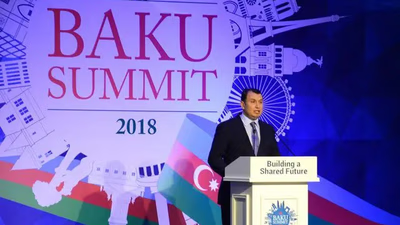
Azerbaijan"s economy remains heavily reliant on oil and gas, with petroleum products constituting over 90% of exports. Despite government efforts to diversify the economy and strengthen the non-oil sector, investments continue to favor energy projects. The country ranks 25th in ease of doing business, reflecting improvements in the investment climate. However, infrastructure challenges persist, particularly in logistics and transport services, where Azerbaijan ranks poorly globally. The government prioritizes border crossing projects but needs to enhance local road networks for better internal communication. While there are plans for investments in renewable energy, they lag behind oil and gas initiatives. Azerbaijan"s strategic location between Europe and Asia offers potential for trade growth, yet issues like corruption and a weak banking system hinder development. The country has significant oil reserves in the Caspian Sea and is developing its resources with foreign partnerships. Although non-oil sectors like tourism and agriculture are growing, reliance on hydrocarbon revenues remains high, complicating diversification efforts.
-
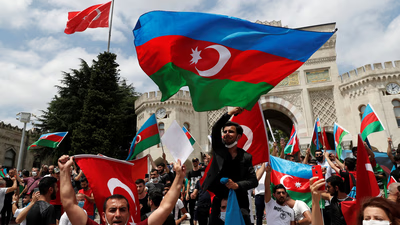
Azerbaijan"s imports encompass a wide array of products, including machinery, industrial equipment, and technology essential for sectors like manufacturing and construction. The country also imports transportation vehicles such as trucks and motorcycles to meet domestic needs. Agricultural imports include grains, meat, dairy products, fruits, and vegetables to satisfy consumer demand despite a robust local agricultural sector. Notably, Azerbaijan continues to import energy products like natural gas and refined petroleum to supplement its domestic production capabilities. The construction industry relies heavily on imported materials such as cement, steel, and timber for infrastructure development. Consumer goods are also a significant part of imports, catering to the growing middle class with household appliances, clothing, and personal care items. Major import partners include Turkey, Russia, China, Iran, and Germany. Specific commodities imported range from plastics and organic chemicals to glass products and textiles. This diverse import landscape highlights Azerbaijan"s reliance on international trade to support its economy across various sectors.
-

Azerbaijan is predominantly a Muslim country, with 99. 2% of its population identifying as Muslims, primarily following Shia Islam. The nation has a rich history of secularism and promotes religious tolerance, allowing various communities, including Christians and Jews, to coexist peacefully. The official language is Azerbaijani (Azeri Turkish), which is closely related to modern Turkish and written in a modified Latin alphabet. Russian remains widely spoken due to historical influences, particularly among older generations. English is increasingly popular among the youth, reflecting Azerbaijan"s growing international connections. The country also recognizes and supports minority languages such as Lezgian and Talysh. Azerbaijani culture is deeply influenced by Iranian, Turkish, and Caucasian heritages, showcasing traditions that span all life stages and public celebrations. Despite globalization"s impact on cultural practices, many traditions remain significant in daily life.
-
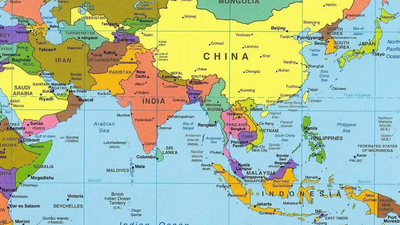
Azerbaijan"s demographic landscape is shaped by its strategic location at the crossroads of Eastern Europe and Western Asia. The country, part of the South Caucasus region, has a population of approximately 10 million, predominantly consisting of Azerbaijani Turks who are mostly Muslim and speak Azerbaijani. Ethnic diversity includes significant minorities such as Lezgins in the north and Russians in urban areas like Baku. Historically, the Armenian population has diminished due to conflict, while Talysh communities reside in the south. Geographically, Azerbaijan features diverse landscapes including the Caspian Sea coastline, Greater Caucasus Mountains, and central plains. This unique positioning not only influences its cultural dynamics but also its economic activities, particularly in trade and energy resources. The country is rich in oil and gas reserves, contributing to its importance in regional commodity trade. Azerbaijan"s secular governance allows for various religious practices alongside a predominantly Shia Muslim population.
Overall, Azerbaijan"s geographical and demographic attributes play a crucial role in shaping its trade relationships within West Asia. "





